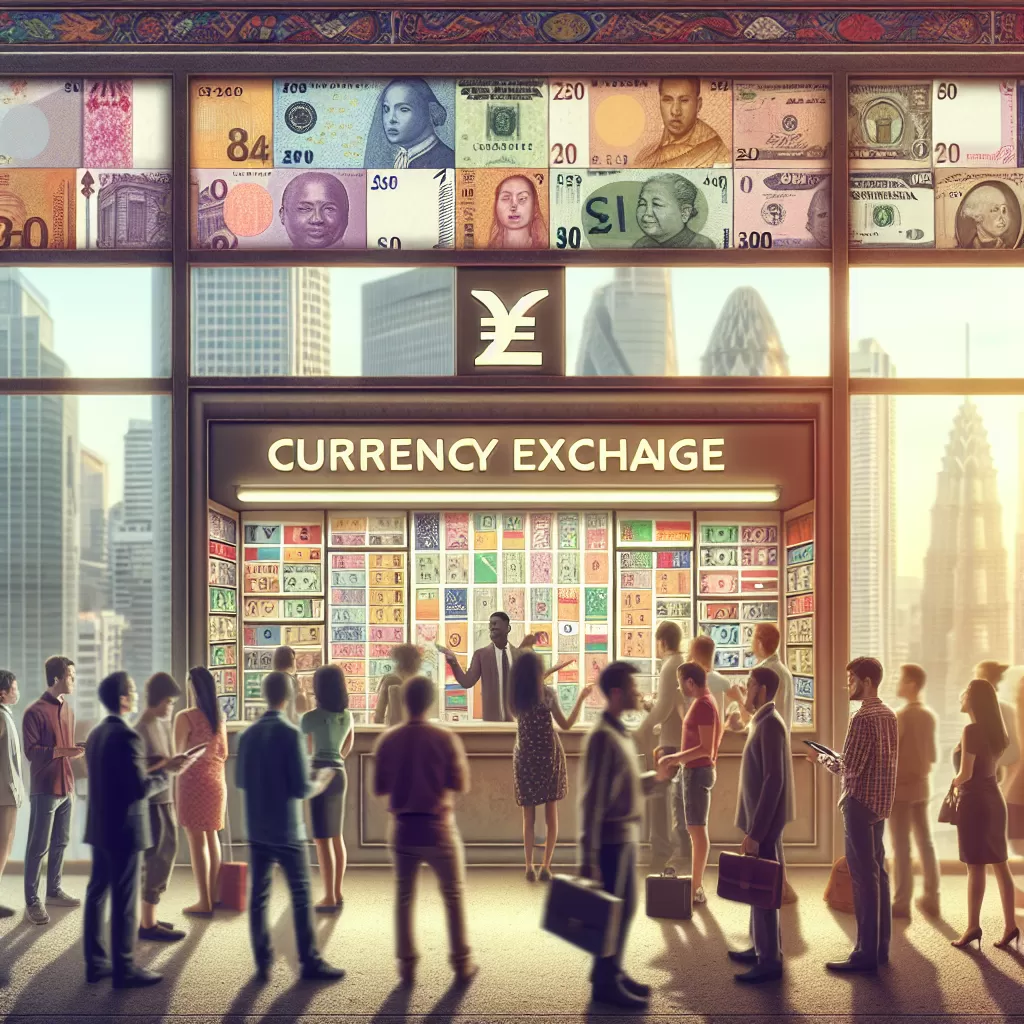Where You Can Exchange Foreign Currency
Follow Currency Mart April 10, 2024
Where to purchase Foreign Currencies?

Introduction
The realm of foreign exchange is a vast ecosystem of shifting rates and values as currency crosses borders. The currency market has evolved considerably, driven by advances in technology, the rise of globalization, and changes in regulatory environments. In this article, I, the Guardian of foreign exchange, will guide you on where you can exchange foreign currency. We'll explore traditional locations, innovative platforms, and the most advantageous options out there.Banks or Credit Unions
A tried and true venue for foreign currency exchange is your local bank or credit union. Financial institutions like these have a long and rich history in currency exchange. They offer reliable exchange services, often allowing customers to purchase foreign currency notes or effectuate wire transfers from one currency to another. While generally a safe option, these institutions tend to offer less optimal rates due to the addition of high commissions.Exchange Bureaus
Located routinely in larger cities and prominent tourist areas, exchange bureaus specialize in foreign currency transactions. They often provide more competitive rates than banks, particularly for high-traffic currencies like the US dollar, Euro, or British pound. However, they also could charge varying fees, and sometimes the advertised rates apply only to significant exchanging amounts. So, always ask for the total cost before making the transaction.Online Currency Exchange Platforms
With the digital revolution, online currency exchange platforms have soared in popularity. They offer competitive rates, flexibility, and convenience. Examples include XE.com and Revolut. They allow users to compare rates across various currencies and execute transactions with just a few clicks. However, like other options, these platforms often apply a service charge or interbank exchange rates. To fully benefit from these entities, ensure to comprehend their pricing structure and hidden fees, if any.Peer-to-Peer Exchanges
Peer-to-peer exchange platforms such as TransferWise or CurrencyFair offer a unique and often cost-effective alternative to traditional exchange methods. These services match users looking to buy a particular currency with those looking to sell it, bypassing the need for a traditional bank. The platform only charges a small percentage as their commission, providing customers potentially better rates.Automated Teller Machines (ATMs)
For small amounts, withdrawing cash from an ATM in the country you are visiting can be a good option. ATMs usually offer better exchange rates than banks or through physical currency exchange. However, there might be significant fees involved from both your home bank and the foreign bank.Credit Cards
Paying with your credit card can offer a reasonable rate, especially when it comes to substantial purchases. Credit card companies obtain close to the interbank rate and pass that on to their customers. But be wary; many credit cards charge a foreign transaction fee, which may offset these better conversion rates.Mobile Apps
Finally, the foreign currency exchange market is tapping into the potential of mobile applications. Apps such as Wise, Revolut, and Xoom bring the market right into consumers' hands, offering real-time rates, low transaction fees, and swift transfers anywhere in the world.Conclusion
Choosing where to exchange your currency is dependent on several factors: the amount to be exchanged, your geographical location, and your tolerance for risk. Whether you choose to go to a bank, an exchange bureau, or use an online or mobile app service, understanding their rates, fees, and reliability is crucial. And remember, the world of foreign exchange fluctuates continuously, so always check the rates before initiating your currency exchange.
Where to purchase Foreign Currencies?